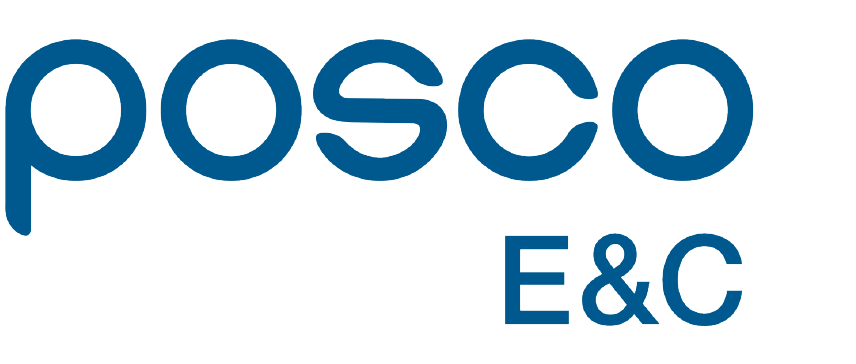POSCO Group’s ethical management is based on our corporate philosophy of “doing the right thing in the right way”.
POSCO Group has achieved remarkable growth with the mission to assist national advancement. In the process, we have engaged in a relentless search to identity what is right for our country and business.
We must charge ourselves with the trust of the people and a stronger belief in ourselves to drive us forward and navigate the future. At this juncture, I would like to share with you the new way forward in our ethical management.
First, ‘my’ actions and decisions should always represent ‘integrity’. We shall not seek personal interests at work and all decisions shall be made with the highest standard of justice and righteousness.
Second, we shall practice the value of respect for ‘others’. We shall protect the human rights of our co-workers and everyone with whom we interact in our business activities, embrace diversity, and treat each other with fairness.
Third, let us exercise ‘mutual empathy’ as a means to extend the boundaries that frame ‘we/us’. We can develop and grow together through mutual trust by paying attention to the voices of our stakeholders and by respecting the perspectives and rights of diverse populations.
POSCO Group will step up our efforts to being a trusted leader in the global market through ethical management.
Ethics Charter
Ethics Principles
Code of Conduct
Practice Guidelines
Programs & Training
Clean POSCO System
POSCO Group aspires to become a trusted and respected enterprise by deeply understanding that ethical management is the greatest value we must uphold in order to co-exist and co-prosper with our many stakeholders as a member of society.
Members of the POSCO family must comply with laws and ethics based on the ethical management philosophy of “doing the right thing in the right way”, while also seeking to achieve Integrity, Respect, and Mutual Empathy and establishing an ethical corporate culture in business activities that cover all the basics and comply with the rules.
At the employee level, we must pursue individual growth and company success by achieving a work-life balance and create a positive work environment by establishing a corporate culture of mutual respect. We must fulfill our duty to respect everyone as human beings and to respect the human rights universally pursued by human society.
For our customers, we must understand that our future depends on customer trust and success. We must respect the customer voice at all times and create value that promotes customer prosperity.
For our shareholders, we must enhance shareholder value by making fair profits through transparent decision making and efficient business activity.
With our business partners, we must establish a fair trading system based on mutual trust and strengthen our corporate ecosystem in which we co-exist with our business partners through mutual growth.
At the community level, we must contribute to the development of society by fulfilling our duties and obligations. We must be deeply aware of the importance of environmental issues and do our best to protect the environment in all of our business activities.
POSCO family members must always be aware of the fact that our actions are directly linked to our self-respect as well as corporate value and reputation. We pledge to comply with the Code of Conduct and to ensure that ethics and integrity are at the heart of our culture and business operations.
July 2024
Ethics Principles
1. Roles and responsibilities of all employees
- We comply with relevant laws and company regulations and guidelines anywhere in the world where POSCO E&C conducts business.
- We endeavor to maintain our dignity as employees and protect our corporate reputation.
- We make our best efforts to establish an ethical culture by taking responsibility for practicing ethical behavior.
- We report to or consult an authority figure or the department in charge of ethical management immediately upon becoming aware of the fact that a situation faced or an action performed by us or another person violates or is likely to violate the Code of Ethics.
- We fully cooperate with investigations conducted by the department in charge of ethical management regarding matters that are likely to violate the Code of Ethics.
- We do not retaliate against informants or individuals who participate in an investigation in relation to Code of Ethics violations.
- We are aware of the fact that by violating the Code of Ethics, soliciting another person to violate the Code of Ethics, failing to report a Code of Ethics violation or cooperate with an investigation, or taking retaliatory action against an informant or individual participating in an investigation, we may become subject to disciplinary action as appropriate.
In particular, we are aware that there is zero tolerance for the four major ethical violations: acceptance of bribery, misappropriation, fabrication of information, and sexual misconduct.
2. Special responsibilities of executives and authority figures
Executives and authority figures have the responsibility to set an example of ethical compliance and prevent ethical misconduct among staff members. To this end, they must be aware of the following principles and put them to practice:
- When the company’s profits and ethics are in conflict, you have a duty to prioritize ethics in your operational and administrative decision making.
- You must exemplify ethical conduct in your work and fulfill your duty as an internal and external role model.
- You must train and guide staff members to understand the provisions of the Code of Ethics and Practice Guidelines and the importance of compliance.
- You must routinely examine your teams for ethical misconduct and proactively prevent unethical behavior that is likely to occur by identifying the causes, improving processes, and taking other measures.
- You must foster an organizational atmosphere that promotes and supports ethically correct behavior where staff members can speak up without worrying about adverse action.
- You must report to or consult the department in charge of ethical management immediately upon becoming aware of the fact that a staff member has violated the Code of Ethics.
- You have unlimited liability for any ethical misconduct you have engaged in, and supervisory liability for the ethical misconduct of a subordinate employee.
Code of Conduct
-
Compliance with basic ethics and relevant laws
- We do not seek personal gain.
- We protect company information and assets.
- We practice fair competition and trading.
-
Developing a culture of trust and human respect
- We foster a wholesome organizational culture.
- We provide equal opportunities.
- We protect and respect human rights.
-
Realizing customer values
- We commit to customer satisfaction.
- We create customer value.
- We build customer trust.
-
Good faith towards investors
- We fulfill our obligations to investors.
- We communicate transparently with investors.
-
Co-prosperity with suppliers
- We build mutual trust with suppliers.
- We pursue co-prosperity with suppliers.
-
Social and environmental responsibility
- We contribute to the development of the nation and society.
- We commit to environmental protection and ecosystem conservation.
Practice Guidelines
Chapter 1. General Provisions
Article 1 (Purpose)
The purpose of these Practice Guidelines is to provide a frame of reference for making decisions and taking action in ethical dilemma situations that may arise during the course of work so that POSCO E&C employees understand and apply the Code of Ethics correctly.
Article 2 (Scope)
These Guidelines apply to the Company and all employees.
Article 3 (Principle of Application)
Employees shall make decisions and take action based on the Code of Ethics and these Practice Guidelines when faced with an ethical dilemma situation in relation to work.
However, if a frame of reference is not clearly prescribed herein, employees shall make decisions and take action according to the following decision-making principles. Employees who are not confident in their judgment shall consult the leader of the organization or the department in charge of ethical management and act accordingly.
<Decision-making Principles>
- • Lawfulness: Is my action likely to be interpreted as a violation of the law, rules, regulations or company Codes?
- • Transparency: Can I disclose my decision-making process and the relevant details?
- • Rationality: Am I making the best possible choice for the company and individuals?
Chapter 2. The Code of Ethics in Practice
1. Restrictions on the provision and acceptance of valuables
- “Valuables” means money (cash, gift certificates, vouchers, etc.), goods, and other articles that may bring about financial gain.
-
Valuables shall not be provided to or solicited or accepted from stakeholders for any reason. However, exceptions shall be made in the following circumstances:
- Marketing or promotional gifts valued at or less than KRW 50,000 or up to KRW 150,000 for agricultural, marine, and processed goods (including ornamental plants)
- Memorabilia bearing the company logo of a stakeholder and memorabilia routinely offered to attendees at stakeholder-organized events, not exceeding KRW 50,000
- Employees shall not solicit or accept gifts from domestic/foreign entities (including any project offices, corporations, branches, etc.) during business trips.
- Valuables that are unanticipated and accepted due to unavoidable circumstances shall be returned, or if this is impracticable, report to the department in charge of ethical management.
2. Principles and restrictions concerning hospitality
- “Hospitality” means various activities that facilitate business-related gatherings and interactions, such as meals, social drinks, golf, performances, and entertainment.
- Hospitality in excess of KRW 100,000 per person shall not be offered to or accepted from stakeholders. If it is necessary to offer or accept hospitality in excess of KRW 100,000 per person in relation to work, prior approval shall be obtained from the head of the department. Hospitality in excess of KRW 100,000 per person that has been offered or accepted due to unavoidable circumstances shall be reported to the department in charge of ethical management.
- Food worth up to KRW 30,000 per person may be provided to public officials, journalists, teachers, and other persons subject to the Improper Solicitation and Graft Act to facilitate work execution or for social, ceremonial, or other legitimate purposes.
- Hospitality at an entertainment and drinks venue that offers services of a sexual nature is prohibited regardless of cost.
3. Principles and restrictions concerning convenience
- “Convenience” means benefits such as transportation, accommodation facilities, sightseeing, event support, etc. provided by or to a stakeholder.
- The provision or acceptance of transportation, accommodation facilities, or other convenience beyond a generally acceptable level is prohibited. However, this shall not include conveniences routinely provided to all attendees at an event, etc.
- A convenience in excess of the permitted range that has been offered or accepted due to unavoidable circumstances shall be reported to the department in charge of ethical management.
4. Principles and restrictions concerning congratulatory and condolence money
- Employees shall not notify stakeholders of their own family events or those of their colleagues. Informing a stakeholder through a third party shall be construed as a notification made by the employee concerned.
- However, employees may inform each other of their family events. Use of the Company's congratulations and condolences channel is advised. For the purpose of family event announcements, the scope of relatives shall be limited to immediate family members, namely the parents, grandparents and children of employees and their spouses. Congratulations and condolence money between employees shall be at a generally acceptable level.
- The maximum limit for congratulations or condolence money paid to an external stakeholder shall be KRW 100,000, including floral wreaths or arrangements. However, congratulations or condolence money paid to a person subject to the Improper Solicitation and Graft Act shall not exceed KRW 50,000, excluding floral wreaths or arrangements.
- Congratulations and condolence money from external stakeholders shall not be accepted under any circumstance. Congratulations or condolence money that has been accepted due to unavoidable circumstances shall be returned or donated to the department in charge of ethical management.
- Employees shall submit the relevant information, such as proof of return of congratulations or condolence money accepted from a stakeholder, when requested by the department in charge of ethical management.
- Condolence flowers from stakeholders shall not be accepted, and those that are accepted due to unavoidable circumstances shall not be displayed.
5. Restrictions concerning solicitations and recommendations
-
Employees shall not make solicitations or recommendations through an internal acquaintance or an external party regarding the following. If an employee has received a solicitation or recommendation, he/she shall register it in the “Clean POSCO System.”
- Requests for preferential treatment regarding various contracts, such as equipment/materials purchases
- Requests for favorable and preferential treatment regarding personnel decisions such as hiring, promotions, rewards and punishments, and transfer of positions
- Requests for excessive convenience, preferential treatment, etc. outside of usual procedures
- Requests to neglect management and supervision tasks such as inspections and tests
- Employees shall not unlawfully solicit favors directly or through a third party in relation to duties subject to the Improper Solicitation and Graft Act.
6. Restrictions concerning Lecture Fee
- A Lecture Fee means the money employees receive as compensation for delivering a lecture at a company, institution, or group other than our company.
- If a lecture involves using knowledge obtained in the line of duty and is held outside the company during business hours, employees shall obtain prior approval from the relevant department related to the lecture content before accepting such request.
- Lecturing at an external venue related to our business implies the use of our company's assets. Therefore, if employees deliver lectures at any company, institution, or organization outside of our company, they shall report this to the head of their department and donate 50% of the Lecture Fee to the department in charge of ethical management.
- Employees may retain the full amount of the Lecture Fee only if the lecture is unrelated to our business and takes place during off-duty hours.
- Employees shall not accept any Lecture Fee from stakeholders, regardless of the lecture’s relation to their business. If any Lecture Fee is received, the full amount shall be donated to the department in charge of ethical management.
- This article shall apply to all other personal proceeds from advice, examination, deliberation, or similar activities related to our business outside the company.
- The donated instructor fees shall be allocated to an Ethics Fund and used for social contribution activities in the lecturer’s name.
- When inviting public officials - such as government officials, journalists, faculty members and other public officials defined under the Improper Solicitation and Graft Act- as a lecturer, Lecture fee shall not be paid in violation of the Improper Solicitation and Graft Act
7. Restrictions concerning monetary transactions
- Employees shall not engage in cash loans, loan guarantees, name lending, leasing of a real estate or other monetary transactions with stakeholders.
- An employee who has engaged in a monetary transaction with a stakeholder due to a personal connection shall report it to the department in charge of ethical management.
8. Restrictions concerning event sponsorship
- Sponsorships from stakeholders shall not be accepted for events funded by the Company, such as department events or club activities.
- The acceptance of vehicles, venues, services, or other conveniences required for an event shall be construed as acceptance of sponsorships.
- A sponsorship that has been accepted due to unavoidable circumstances shall be reported to the department in charge of ethical management.
9. Principles concerning the use and protection of Company assets
- The Company's budget resources, such as meeting expenses and operating expenses, shall be used as intended by the budget and in accordance with legal requirements, and shall not be used for personal purposes.
- As a general rule, business expenses shall be paid with a Company card.
- In addition to the budget, all tangible and intangible assets, including Company supplies and facilities, shall be used for work-related purposes only.
- Ongoing efforts shall be made to protect assets by periodically reviewing asset classification and protection measures.
- All Personal information (such as telephone numbers, email addresses, etc.) of customers or employees shall not be disclosed or used for any purpose other than its intended collection and processing purposes.
10. Principles concerning information protection
- Important or confidential Company information shall be strictly protected and controlled.
- Important information shall be relayed to the intended recipient immediately upon recognition.
- The falsification, concealment, or distortion of work-related information or the reporting or distribution of incorrect information shall be regarded as fabrication of information.
- Employees shall manage internal Company information acquired during the course of work according to the security level, and shall not use the information for personal purposes.
11. Fair trade regulations and building mutual trust with suppliers
- Employees shall comply with international standards and national laws and regulations concerning fair trade to ensure fair competition in domestic and international markets and refrain from engaging in unfair trade practices such as colluding with competitors regarding production, prices, bidding and market segmentation.
- Employees shall fulfill their social responsibility by refraining from using a position of power against a client or supplier to make demands or unlawful requests.
- Employees shall respect the rights and property of others, including intellectual property rights, and shall not infringe upon them to create business or generate profit.
- The information acquired from a supplier shall be strictly protected as stipulated in relevant laws and regulations and contract terms.
- Employees shall support suppliers to comply with laws and regulations concerning fair trade and ESG.
12. Principles concerning the prevention of conflicts of interest
- “Conflict of interest” means a situation where a personal relationship with an employee of a supplier has an improper influence on an employee’s work performance.
- Employees shall not engage in unfair trade practices such as signing unlawful private contracts, making high-price purchases, tunneling work, or leaking trade information to give preferential treatment to a certain individual or corporation.
- Employees shall prevent conflicts of interest by strictly denying improper requests from a supplier’s employee with whom there is a personal connection, including former employees.
- Employees shall not make unofficial contact with a supplier’s employee with whom there is a personal connection, and shall report any unintentional contact to the head of the department or the department in charge of ethical management.
- Employees shall not attend gatherings of former employees without the Company’s approval.
- Where an employee has a personal connection to a supplier’s employee, he/she shall consult the head of the department or ethics officer and adjust his/her duties, etc. accordingly.
- When the head of the department recognizes a work-related conflict of interest involving himself/herself or a staff member, he/she shall adjust the relevant duties or otherwise take action to avoid the conflict of interest. If it is impracticable to avoid the conflict of interest due to the nature of the work, he/she shall consult the department in charge of ethical management.
- 퇴Retired employees shall also prevent conflicts of interest with POSCO E&C and its affiliated companies.
13. Developing an organizational culture of human respect
- Employees shall not engage in verbal, physical, or visual behavior that may offend others, such as the use of profanities, verbal abuse, physical abuse, or sexual harassment that violates the human rights of an individual.
- Violations of human respect may be subject to disciplinary action in accordance with the relevant regulations.
- Employees shall respect each other’s privacy and shall not slander or undermine others or disclose personal information.
- Employees shall comply with national labor laws and international standards, including working conditions for minors and minimum working age requirements.
- Safety rules shall be strictly observed, and any risks identified shall be addressed appropriately.
Chapter 3. Reporting Unethical Conduct and Rewards and Sanctions
- Employees who recognize the fact that he/she or someone else has violated the Code of Ethics or these Guidelines shall actively protect the Company and employees from unethical practices by reporting to or consulting the head of the department or the department in charge of ethical management as quickly and conveniently as possible. However, violations of human respect shall be reported to the department in charge of ethical management without delay.
- Executives and department heads shall report to and consult the department in charge of ethical management immediately upon being informed of a violation of the Code of Ethics by a staff member, and shall not downplay or conceal the incident.
- The department in charge of ethical management may conduct a fact check of the reported incident if necessary, and the employees concerned shall actively cooperate.
- Employees shall not take adverse action against, or disclose the identity of, an informant or whistleblower.
- Where it is likely that an informant or whistleblower may be subject to adverse action in terms of employment, a change of position or other personnel measures shall be taken if so desired by the informant.
- If an employee becomes aware of the fact that an incident has been reported, either by chance or during the course of work, he/she shall keep it confidential or face disciplinary action.
- The Company may award part of the clawback resulting from an ethical misconduct investigation to the informant as compensation in accordance with the relevant regulations.
- The compensation criteria shall be in accordance with the guidelines on compensation and indemnity for informants of ethical misconduct and other relevant regulations.
- The Company shall firmly reprimand employees who violate the Code of Ethics and Practice Guidelines in accordance with the relevant regulations.
- The Company may restrict Company access and business to employees who have been dismissed after violating the Code of Ethics.
- Employees who become aware of a violation of the Code of Ethics or these Practice Guidelines shall actively protect the Company and employees from the violation by reporting it to the head of the organization or department or the department in charge of ethical management for timely resolution.
Guideline for Compliance with Anti-Corruption Laws
Section 1. Global Anti-corruption Standards
POSCO E&C employees shall observe global anti-corruption legal and ethical standards laid down in the Foreign Corrupt Practices Act, 1977(FCPA) of the United States, the Bribery Act, 2010 of the United Kingdom, the OECD Convention on Combating Bribery of Foreign Public Official in International Business Transactions(OECD Convention) and the UN Global Compact.
FCPA prohibits any company(U.S or non-U.S) listed on a national securities exchange in the United States from making a corrupt payment to any non-U.S foreign government officials and prescribes keeping of accurate records and implementation of adequate internal controls. In Particular, since POSCO being a listed company on New York Stock Exchange(NYSE), POSCO E&C has to abide by the FCPA. The Bribery Act prohibits the U.K companies and any non-U.K entities doing business in the U.K from making a corrupt payment to any non-U.K foreign government officials, counterparts etc.
The OECD Convention is the first international convention which has made a corrupt payment to foreign government officials a criminal offence. The Republic of Korea has enacted and implemented the Anti-bribery Law against the payment of bribery toward foreign public officials in international business transactions as a national implementing legislation for OECD Convention.
The UN Global Compact regulates all kinds of corrupt practices of corporate entities.
POSCO E&C employees shall observe not only the global anti-corruption laws and standards but also the local anti-corruption laws and regulations of the country where they conduct business. For instance, in the Republic of Korea, some of the local laws and regulations include Criminal Act, Act on the Aggravated Punishment, etc. of Specific Crimes, Act on the Aggravated Punishment, etc. of Specific Economic Crimes, and Prohibition Law on Corrupt Solicitation and Bribery etc.
In case that a behavior has violated the global anti-corruption laws and standards or local laws, it shall not be exempted from legal obligations, even if it has been done in accordance with the social or business customs.
If there is a conflict or inconsistency between the global anti-corruption laws, standards, local laws and these guidelines, the strictest one shall prevail.
Section 2. Prohibition & Restrictions on Convenience
General Principle POSCO E&C employees shall not provide or receive anything of value as convenience to or from any interested party, including foreign or local government officials, counterparts etc., with corrupt intention to obtain or retain any business benefits. In this regard, the anything of value includes:
- Securities such as stocks and bonds, real estate, meal, gift, sports, entertainment,
- Transportation, accommodation etc.,
- Any rights to use or discount on goods or services,
- Any exemptions or concessions for liabilities, employment, privileges, or any tangible or intangible benefits.
Provided that where providing or receiving a generally accepted convenience is necessary to conduct the ordinary business for sales promotion, conclusion of a contract or promotion of mutual business understanding etc., these may be allowed subject to the following that:
- Convenience is ordinary and reasonable,
- Convenience is not frequent within specific period,
- Expense for convenience is recorded accurately in the books of account of the concerned company.
Provided that the concerned employee of POSCO E&C shall seek clarification from the FCPA Compliance group before taking any actions, in the event that it is unavoidable to provide any convenience beyond the reasonable level. Then, the employee has to submit the evidencing documents of the expense for convenience to FCPA Compliance group
Meals, Gifts and Entertainment
Whenever a POSCO E&C employee provides any meal or gift to an interested party as a
token of courtesy in order to promote amity, he or she shall ensure that:
- The value of such meal or gift is nominal compared to the salary level of the receiving party,
- The meal or gift is provided only at necessary points of time with clear justification and is not provided frequently within specific period.
- The cost of convenience such as meal does not exceed the value of Korean Won 100,000 and that of the gift does not exceed the value of Korean Won 50,000. However, the gift that are “agricultural, marine or livestock goods, or a processed good that’s at least 50 percent composed of an agricultural, marine or livestock base” does not exceed the value of Korean Won 100,000. But when such provision mentioned above is for public officials, included in ‘The Improper Solicitation and Graft Act’, a POSCO E&C employee shall abide by the related laws and POSCO E&C’s code of ethics.
Convenience
Whenever a POSCO E&C employee provides any convenience to any interested party,
that POSCO E&C employee shall ensure that:
- He or she shall not provide or receive convenience such as transportation, accommodation, etc. beyond a generally accepted level except for the convenience which is provided equally to all attendees of an event.
- The convenience is of reasonable level and directly or indirectly related to sales promotion, conclusion and implementation of a contract or promotion of mutual business understanding etc.
- The convenience is not provided to anyone other than interested parties themselves (family, friends, etc.)
- The expense for convenience is not paid to the interested parties but is paid directly to the service providers such as airlines, hotel, etc. However, in the particular case that the expense of convenience is evidenced and complied with the company policy may be allowed to pay the interested parties.
Expenditure management
POSCO E&C employees shall observe all the internal procedures of reporting and
recording, including expenditure if any, in order to provide any convenience to the
interested parties. In case of expenditure, it shall be evidenced with invoice, bill or
purchase statement, etc. and recorded properly in the books of account of the company.
The evidencing documents shall include the name, entity, title, etc. of the interested
parties. In addition, all expenditure has to be incurred only after obtaining prior approval
from the person(s) of authority.
Section 3. Prohibition & Restrictions on Facilitating Payment
No POSCO E&C employee shall make any facilitating payment to any domestic and foreign government officials in order to gain any favor.
The facilitating payment is relatively small in amount, provided or intended to be provided to a government official who is involved in routine work, in order to expedite a legitimate business decision or other transaction, which may include:
- Collecting and processing administrative documents like registration, visa, etc.
- Customs clearance, loading or unloading of products, etc.
- Opening telephone line, supply of electricity or water, etc.
Section 4. Prohibition & Restrictions on Personal Gifts for Special Occasions
Monetary or other tangible gifts for special occasions such as weddings or funerals are only permissible when it is essential to give such gifts under local practice. In addition, the value of such gifts shall be permitted under local anti-corruption laws and regulations. When POSCO E&C employee desires to give a personal gift exceeding the value which is permitted under the laws, they shall contact, consult with and obtain prior approval from FCPA Compliance group.
Section 5. Prohibition & Restrictions on Charitable Donations and Political Contributions
To make any kind of donation to a charity organization or contribution to a government agency, government organization or political party, POSCO E&C employees shall receive prior written approval from the person of authority.
POSCO E&C employees can only give such charitable donation or political contribution in the event that they have obtained such prior approval. However, monetary donations or contributions which may harm POSCO E&C’s reputation or may be considered as a bribe, or which are given for the purpose of obtaining in exchange an improper benefit are forbidden at all times.
Section 6. Prohibition & Restrictions on Personal Political Activity
POSCO E&C employees are prohibited from engaging in personal political activities which could be considered activities under the name of POSCO E&C, except in the case that they indeed have such representative position. POSCO E&C employees shall ensure that their personal political activities or contributions are not mistaken to be the conduct of POSCO E&C. If the relationship between a POSCO E&C employee and POSCO E&C is revealed in the course of such activities, the POSCO E&C employee shall clearly express that they are not acting on behalf of POSCO E&C.
POSCO E&C employees shall not use POSCO E&C’s resources (e.g., phones, equipment, networks, etc.) when personally conducting political activities or making political donations. When expressing their own political opinions or participating in lobbying activities, POSCO E&C employees shall make it clear that this does not imply the endorsement or approval of POSCO E&C.
Section 7. Prohibition on illegal Transactions such as Money Laundering
POSCO E&C employees shall not misuse POSCO E&C as a tool to launder money gained from criminal activities, and shall ensure that their transactions are conducted in a clean, legitimate, and transparent manner.
POSCO E&C employee shall make all reasonable efforts to ensure that there are no illegal transactions, by monitoring whether any irregularities exist in the transactions by POSCO E&C.
Section 8. Third Parties and Joint Ventures Section
Third Parties
Whenever POSCO E&C employees deals with Third Parties must be taken to ensure that the Third Parties comply with the Guidelines. Due diligence, Contractual documentation and ongoing checking procedures whether the Third Parties comply with the Guidelines set forth below are designed to ensure that the Third Parties follow the Guidelines. If there are any concerns or questions related to the Third Parties, POSCO E&C employees shall immediately contact and consult with FCPA Compliance group.
1. Types of Third Parties which POSCO E&C Deals with
POSCO E&C employees may execute agent contract, consulting contract(e.g.
granting a license, legal and accounting advisor), overseas service contract and
sales contract with third parties, which help sell products to governments or handle
other company interactions with the government (e.g., granting a license). These
third parties may include agents, consultants, professional advisors (including legal
and accounting advisors), or distributors.
- Agent Contract means the agreement with third parties, which assist the contract negotiation and promotion on behalf of POSCO E&C, to win a contract.
- Overseas Service Contract means the agreement which POSCO E&C would make with third parties before or after winning a contract at countries other than Republic of Korea in order to execute consulting, surveying, engineering, supervising, performing, or administrating on behalf of POSCO E&C regarding licensing, legal or accounting matters.
- License Contract, Consulting Contract means the overseas service agreement with third parties who perform the work on behalf of POSCO E&C, especially obtaining approval, advise about the legal, accounting, clearance matters.
2. Due Diligence
A. General Principle
The POSCO E&C employee who is the principal point of Contract for Third Parties
must ensure that the diligence measures set forth below are carried out and
documented.. Shall such POSCO E&C employees have any questions regarding
compliance with the diligence procedures, inquiries shall be directed to FCPA
Compliance group.
- Document the information collected during the selection process, conduct an in-person interview with the candidate, explain POSCO E&C’s expectations and Guidelines.
- Document any services that will be provided, the compensation that POSCO E&C will pay for such services, and the basis for believing the compensation is reasonable.
- Maintain and update the Third Party’s due diligence file with any new information obtained during periodic reviews of the relationship.
B. Resolution of Compliance Management Committee
The POSCO E&C employee who wants to make an agent contract or overseas service contract which contract price is exceeding Korean Won 1 Billioin shall follow the following procedures. In the case of satisfying the following requirements, resolution of Compliance Management Committee shall be requested.
a) Agent Contract
- The POSCO E&C employee who wants to make an Agent Contract shall obtain the information about the third parties who wants to make the contract and shall complete the attachment 1.Third party due diligence information sheet thoroughly and accurately.
-
Upon the result of third party due diligence information sheet, POSCO
E&C employees shall complete the attachment 2. Agent Contract Risk
Checklist. If the following circumstances, POSCO E&C employees shall
request the review of Compliance Management Committee:
(1) total score is over 65
(2) at least one item is assigned 15 points or higher
-
Where the Overseas Service Contract is a private contract, upon the result of
third party due diligence information sheet, POSCO E&C employees shall
complete the attachment 3. Overseas Service Contract Risk Checklist. Where
the Overseas Service Contract is an open competition contract, POSCO E&C
employees shall complete the attachment 4. Overseas Service Contract Risk
Checklist. If the following circumstances, POSCO E&C employees shall
request the review of Compliance Management Committee regarding the qualification for
entering the contract under FCPA :
(1) total score is over 80 (if licensing or consulting contract, the total score is over 65)
(2) at least one item is assigned 15 points or higher
3. Contractual Documentation
All Third Parties whom POSCO E&C deals with must have written agreements
with POSCO E&C, which include the following:
- Anti-corruption representations and warranties acknowledging that the Third Party will conduct itself in accordance with the FCPA, other applicable antibribery laws and the Guidelines
- A description of the role and responsibilities of the Third Party, including a description of services for which the POSCO E&C will pay the Third Party
- Compensation terms
- Termination right in the event the Third Party breaches its obligations to comply with Anti-Corruption Laws
4. Responsibilities after Executing Contracts
A. General Principle
After executing Contracts with the Third Party, POSCO E&C employees shall
make the Third Party comply with the global anti-corruption laws and standards,
and in case of finding out any violations thereof, POSCO E&C employees shall
report immediately to FCPA Compliance group to make the company take
appropriate measures such as rectifying the violations or terminating the contracts
with the Third Party.
B. Agent Contract
The POSCO E&C employee who wants to make an Agent Contract shall obtain the information about the Agent who wants to make the contract and shall complete the attachment 5. Post-Execution Agent monitoring check list sheet thoroughly and accurately. When the POSCO E&C employee requests to release the Agent payment, the POSCO E&C employee shall submit the documents in relation to the services provided and Post-Execution Agent monitoring check list sheet, then obtain the approval from FCPA compliance group
Joint Ventures
The same general rules that apply to the Third Parties shall also apply to the activities of
joint ventures and joint venture participants..
Third Party Red Flags
When monitoring Third Parties and joint venture relationships, POSCO E&C employees
shall pay attention to the following red flag items. If any red flags exist, or there are
concerns or questions related to Third Parties or joint ventures, POSCO E&C employees
shall immediately contact and consult with FCPA Compliance Group.
- The country where the transaction is taking place has a long and extensive history of corruption.
- The transaction involves an industry in which anti-bribery violations commonly occur.
- It is the first time that the Third Party has been engaged in business with POSCO E&C.
- The Third Party seems to have insufficient capability or qualifications to provide the services or goods for which it is being engaged.
- The Third Party does not directly involve in the type of project or business activity for which it is being retained
- The Third Party has previously engaged in illegal practices, such as the giving and taking of bribe.
- The Third Party requires that the transactions be made anonymously
- The Third Party was specifically recommended by a Government Official.
- The Third Party refuses to agree to abide by the FCPA or the Guidelines.
- The Third Party provides incomplete or inaccurate information in the required disclosures.
- The Third Party refuses to enter into written contracts.
- The Third Party requests overly complex payment arrangements, including requiring that payment be made to the representative upfront, indirectly through another party, or in some other country.
- The Third Party has off-the-book accounts or unrecorded transactions and/or payments
- The Third Party requests an unusually large commission in relation to the service provided.
- The Third Party requests reimbursement for poorly documented or questionable expenses.
- The Third Party makes unusually large or frequent political contributions.
- The Third Party has family or business ties to relevant Government Officials.
- The only qualification the Third Party has is the ability to influence Government Officials
- The Third Party has a business relationship with public officials and POSCO E&C’s customers on behalf of POSCO E&C
Section 9. Accounting Record & Management
The global anti-corruption laws and standards provide keeping a system of accounting controls to record and monitor the execution of business transactions to ensure that all such transactions are accurately recorded.
POSCO E&C employees shall keep bills, invoices and other related payment documents that are generated while performing business for period of five years for proper accounting, and any payment or possession of assets which is not recorded in the books of company is hereby strictly prohibited.
In addition to maintaining books and records, all businesses shall be performed as per the following procedures via internal accounting management system of the company
- All transactional expenses shall be executed after approval from a person with proper authority,
- All transactions shall be recorded as per internal accounting standard to obtain the approval from a person with proper authority,
- Assets of company shall be utilized only after approval from a person with proper authority,
- Regularly perform due diligence on assets of the company and make appropriate efforts to match with books and records.
Section 10. Compliance Management Committee
POSCO E&C’s Compliance Management Committee shall be responsible for overall administration of the Guidelines in accordance with Composition and Operation of Compliance Management Committee.
The Compliance Management Committee shall be comprised and shall have its meetings in accordance with Composition and Operation of Compliance Management Committee.
Section 11. Inspection & Education Program
POSCO E&C employees shall perform self-inspection in case that there is a violation or concern of violation against global anti-corruption laws and standards, and report the result of inspection along with improvement suggestions to FCPA Compliance group.
POSCO E&C employees shall attend the regularly conducted anti-corruption education programs, and a record of attendance shall be maintained and submitted to the relevant department upon request.
Section 12. Whistle Blow & Protection for Whistle Blower
POSCO E&C employees shall report to FCPA Compliance group or Reporting/Counseling Center in Audit Group when they get to know or have a reason to believe that a violation of global anti-corruption laws and standards or these Guidelines.
The company shall fully protect such whistle blower who reports violation of global anticorruption laws and standards or these Guidelines to FCPA or Reporting/Counseling Center in Audit Group Compliance group and hereby prohibit revealing identity, retaliation, tracking of such whistle blower or giving him or her any type of disadvantage.
Section 13. Reward & Punishment
POSCO E&C may reward employees of conspicuous merit in achieving the objectives of these Guidelines as per the rules of internal reward and punishment.
POSCO E&C may punish employees who violate global anti-corruption laws and standards and these Guidelines as per the rules of employment and the rules of internal reward and punishment, which may including dismissal, discharge, suspension, salary reduction, etc.
POSCO E&C shall not be responsible for any fine, cost, etc. if a civil or criminal penalty is imposed on its employee for violation of global anti-corruption laws and standards.
It is strict POSCO E&C policy that no adverse employment or other action will be taken against any POSCO E&C employee in retaliation for reporting a violation or suspected violation of the Anti-Corruption Laws.
If POSCO E&C suffers harm as a result of POSCO E&C employee’s violation of the AntiCorruption Laws or the Guidelines, the above penalties shall not be construed as a limitation on the right of POSCO E&C to seek compensation for damages from such POSCO E&C employee.
Section 14. Policy Update
The Compliance Management Committee Committee is hereby authorized to amend and update the Guidelines, including as needed to remain in compliance with any new developments in the Anti-Corruption Laws.
Section 15. Effective Date
The Guidelines are amended and effective as of February 17, 2023.
POSCO E&C operates the Reporting Consultation Center where employees can report unethical behaviors done by executives and staff members, under the motto of “Doing the Right Things Right.”
Reporting Consultation CenterSystem Operation
POSCO E&C has established and is operating a variety of ethics-related policies to help employees be accustomed to ethical practices.
Educational Activities
POSCO E&C is contributing greatly to the establishment of an ethical corporate culture through various channels of ethics education.
Purpose
Creating a corporate culture with “no solicitation” by recording and managing all recommendations and requests
Works as a preventive device against unethical behavior 
- The executive or staff member who received the solicitation. can justify their refusal due to company’s registration policy and
- the person who made the solicitation feels the psychological burden of leaving a solicitation record. This prevents unreasonable solicitations in the future.
Practicing whistle blower spirit 
- Creating an honest and transparent atmosphere in the company by executives and staff members who received the solicitation by conscientiously registering
- Solicitation registration is regarded as a voluntary report. Executives and staff members are protected and exempt from any future problems or responsibilities.
Operation Process
-
Registration subject
- All executives and staff members related to recommendation/solicitation, including recipients, deliverer, and related persons in charge
-
How to register
- Executives and staff members who received recommendation/solicitation should register what happened in accordance with 5W1H principle.
- Solicitor is informed with the registration fact along with his/her personal information (name, company name, position, etc.)
-
Registration time
- Recommendation/solicitation should be registered within 24 hours after it occurs
- However, if there is a special reason such as business trip, registration should be made immediately after the reason has ended.
Process for recommendation/solicitation registration
-
STEP 1
Recommendation/Solicitation should be registered it in the system in accordance with 5W1H principle
-
STEP 2
Company Audit Department receives and reviews the content
-
STEP 3
The information is delivered to the relevant department (HR Office, Equipment & Materials Purchasing Office, etc.)
-
STEP 4
If necessary, Investigation is carried out by the Company Audit Department and necessary measures are taken in case of problems
Detailed Standards
Definition of solicitation
- Solicitation refers to any expression of intention by the solicitor, such as a request that may influence the performance of duties and decision-making of executives and staff members, for the purpose of the solicitor him/herself or others
Standards for judging fairness about the influence on job performance or decision-making (* Regulations of the Anti-Corruption & Civil Rights Commission)
- An act that creates an interest to the executive or staff member who received the solicitation if he/she accepts or rejects the solicitation
- An act (request of the solicitor) that is psychologically burdensome on the person when conducting fair business
Scope of recommendation/solicitation to be registered
- Clean POSCO system is to prevent the occurrence of misconduct by solicitation in advance. Thus, the scope of solicitation is wider than what is defined by the law. All expressions of intention that can undermine fairness should be registered.
- If it is unclear whether it is a solicitation or a normal business, they should be registered in the system
- Executives and staff members who do not register the recommendation/solicitation despite being aware will be severely sanctioned.
- Request for preferential treatment for equipment/material purchase and various contracts
- Request for special and preferential treatment in various personnel matters, such as recruitment, promotion, reward, punishment, and position transfer
- Request for special treatment, such as providing convenience/benefits that breaches standards and principles
- Request to neglect management/supervision tasks such as inspection
- In case where the solicitor withdraws the solicitation facing a refusal in fear of identity exposure due to solicitation registration
- Request for cooperation through official documents
- Acts of requesting cooperation, such as simple confirmation, inquiry, complaint, etc. for doing business in related institutions or departments
How recommendation/solicitation registration is processed
- Recommendation/solicitation results are handled by relevant departments such as HR and the Procurement Department, and penalties may be imposed to related executives and staff members or companies.
CCTV Operation policy
CCTV Policy for the Protection of Personal Information
CHAPTER I GENERAL PROVISIONS
Article 1 (Purpose)
The purpose of this Policy is to fulfill appropriate duties and comply with applicable laws by setting matters POSCO E&C Ltd. (the “Company”) must comply with in relation to the installation and operation of closed-circuit televisions and protection of footages.
Article 2 (Definitions)
The terms used in this Policy shall be defined as follows:
- 1. The term closed-circuit television (“CCTV”) is a type of communication network, in which the footages recorded from the CCTVs located in specific sites are collected and transmitted to exclusive receivers through wired/wireless closed-circuit channels.
- 2. The term “footage” refers to CCTV recordings of which the recorded subject can be identified.
- 3. The term “data subject” refers to an individual who can be identified from the footage; that is, the subject of footage.
- 4. The term “processing” refers to the act of handling data collected through CCTVs, such as inputting, saving, editing, deleting, playing, and other similar acts, excluding the collection of such data.
Article 3 (Scope of Application)
- (1) In relation to the installation and operation of CCTVs needed for crime prevention, facility security, and fire safety, as well as the protection of footages that are collected and processed by the aforementioned reasons, the provisions of this Policy shall be observed, unless special provisions are stipulated in other laws.
- (2) Use of auxiliary cameras for CCTVs installed and operated by the Company shall also comply with this Policy, regardless of the fact whether their recordings are treated as actual footages or not.
Article 4 (Protection of Footages)
- (1) The Company shall collect minimum scope of footages that meets the purpose of CCTV installation.
- (2) The Company must have the data subject clearly aware of the installation purpose as mentioned in paragraph (1) of this Article. The footages shall not be used for other purposes than the said purpose.
- (3) The Company shall secure accurate and the latest footages and manage them in a safe manner.
- (4) The Company shall disclose general matters in relation to the handling of footages and protect the rights of data subjects.
CHAPTER II REQUIREMENTS FOR CCTV INSTALLATION
Article 5 (Notification of Installation Plans, etc.)
In the event of installing a CCTV, the Company shall prepare a CCTV installation and operation plan (“Plan”) that includes the following items:
- 1. Purpose of CCTV installation;
- 2. Division in charge of CCTV control: Handling officer and contact details;
- 3. Number of cameras, locations, performance, and scope of recording of the CCTV to be installed and operated;
- 4. Standard of the caution sign to be installed and the installation location in accordance with Article 7(1);
- 5. Contents, procedures, and methods regarding the data subject's exercise of rights and means of objection;
- 6. CCTV recording time, retention period of footages, methods of storage, management, and deletion of footages, and storage location of footages;
- 7. Actual location where footages transmitted from CCTVs are accessed and played, and access control to the said location;
- 8. Grounds, procedures, and methods of providing or granting access to footages to a third party; and
- 9. Other matters recognized to be necessary for the protection of footages
Article 6 (Designation of CCTV Managers)
- (1) The head of the division in charge of the installation and operation of CCTVs shall be designated as the CCTV General Manager, while his or her staff shall be designated as CCTV Operation Manager(s) (“CCTV Manager(s)”).
- (2) The CCTV Manager shall take charge of duties in relation to the installation and operation of CCTVs, reception and handling of complaints, and collection and processing of footages.
- (3) The CCTV Manager shall designate and manage a separate Personal Information Handler and inform the CCTV General Manager of relevant information in the event of CCTV installation and/or other changes.
Article 7 (Installation of Caution Signs)
- (1) In the event of installing a CCTV, the Company shall put up caution signs regarding CCTV operation and the collection of footages for the recognition of data subjects.
- (2) The signs in relation to paragraph (1) of this Article shall mention the following items:
- 1. Purpose of CCTV installation;
- 2. Recording scope and time; and
- 3. Information on the CCTV handling division, CCTV Manager, and contact details
- (3) The signs in relation to Paragraph (1) of this Article shall be installed within the recording scope where they are easily visible and understood by data subjects.
- (4) Notwithstanding Paragraph (2), in the event of installing several CCTVs in the Company’s building, the sign that complies with Paragraph (1) may mention that the whole building is within the recording scope and can be attached only on the building exits.
CHAPTER III REQUIREMENTS FOR HANDLING FOOTAGES
Article 8 (Limitation on Collection)
- (1) CCTVs shall not be arbitrarily manipulated or shoot other places beyond the purpose of their installation during collection of footages.
- (2) Footage rotation and zooming features that have no relation to the purpose of CCTV installation may not be used during collection of footages.
Article 9 (Limitation on Processing)
Footages of a data subject may not be used for other purposes than the CCTV installation purpose or be granted access or provided to a person who has no access authority: Provided, That this shall not apply in any of the following circumstances:
- 1. Where consent is obtained from the data subject;
- 2. Where the data is given access or provided to the data subject;
- 3. Where special provisions exist in other laws;
- 4. Where the data is provided in a pseudonymized manner when it is required for the purposes of reporting by the media through newspapers or broadcasting;
- 5. Where there is an urgent reason for not obtaining the data subject's consent when the risk that the rights and interests of the data subject may be infringed is clear and present;
- 6. Where it is necessary for the investigation of a crime, indictment, and/or prosecution; or
- 7. Where it is necessary for the enforcement of punishment, probation, and custody.
Article 10 (Safeguards, etc.)
- The Company shall designate a place where footages transmitted by CCTVs are actually accessed and played (“Control Center”) as a restricted zone and strictly limit the access of individuals apart from those who have been granted the authority.
- (2) The Company shall limit the authority to access footages to CCTV Managers and the minimum number of designated personnel.
- (3) The Company shall regularly inspect and check the normal operation of CCTVs and keep an accurate record regarding the matters.
- (4) The Company shall seek for technical and managerial safety measures in response to illegal access, alteration, leakage, and damage of footages.
- (5) The Company shall prepare a training course on the personal information protection of data subjects for those who are granted authority to access footages.
Article 11 (Request for Access, etc.)
- (1) A data subject may request to confirm the existence, access, and/or delete footages to the Company.
- (2) In relation to the request as mentioned in the paragraph (1) of this Article, the Company shall take immediate action in accordance with Article 5(5).
- (3) Notwithstanding Paragraph (2) of this Article, the Company may refuse to take action in the event of any of the following circumstances. In this case, the grounds for refusal and objection method shall be informed (including information and communications networks) to the data subject within seven (7) days.
- 1. Where it may cause grave difficulties in performing investigation of crimes, prosecution, and conduct of trials;
- 2. Where deleting only the footages of a specific data subject is extremely difficult in technical manner;
- 3. Where taking appropriate action as prescribed in Paragraph (1) of this Article may infringe upon other's privacy rights; or
- 4. Where there are appropriate grounds to refuse the request for access, etc., that meet the public interest.
Article 12 (Retention and Deletion)
Footages collected through CCTVs shall be deleted without delay once the data retention period mentioned in the Plan expires: Provided, That when it is difficult to determine the minimum period of time required to achieve the purpose of data retention due to the nature of a division, the retention period shall be within thirty (30) days after the collection of footages.
CHAPTER IV SUPPLEMENTARY PROVISIONS
Article 13 (Consignment of Duties)
- (1) In the event of consigning the duties in relation to the installation, operation, and management of CCTVs, the Company shall take necessary safety measures to prevent the abuse of footages and supervise the consignee.
- (2) The consignee who is granted authority to access footages in relation to paragraph (1) of this Article shall undergo a training course as mentioned in Article 10(5).[lh1]
Article 14 (Confidentiality)
Those who handle or have handled footages shall not use the obtained data for inappropriate purposes, such as revealing, processing without authority, and/or providing for the use of another person.
Article 15 (Exclusion)
This Policy shall not be applied to CCTVs installed and operated to supervise the duties of individuals who are with the military regardless of their duties.












